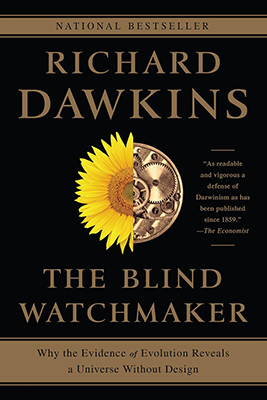The Blind Watchmaker
“The Blind Watchmaker” is a seminal work by evolutionary biologist Richard Dawkins, first published in 1986. In this book, Dawkins presents a comprehensive argument for the theory of evolution by natural selection and critiques the idea of intelligent design.
The central metaphor of the book is the watchmaker analogy, which suggests that the complexity of living organisms implies the existence of a designer, much like the complexity of a watch implies the existence of a watchmaker. Dawkins dismantles this analogy by demonstrating how the process of natural selection, acting on random variation, can produce the appearance of design without the need for a designer.
Dawkins explores various aspects of evolutionary theory, including the role of genes, the mechanisms of natural selection, and the evidence for common ancestry among species. He also addresses common misconceptions about evolution and confronts arguments put forth by creationists and proponents of intelligent design.
Throughout the book, Dawkins uses clear and accessible language to explain complex scientific concepts, making it suitable for readers with varying levels of familiarity with biology. He emphasizes the power of natural selection as a blind and unconscious process that can produce the diversity and complexity of life on Earth.
Overall, “The Blind Watchmaker” is a persuasive and influential defense of evolutionary theory, challenging readers to consider the evidence for evolution and to critically evaluate claims about the origins of life and the diversity of species.

